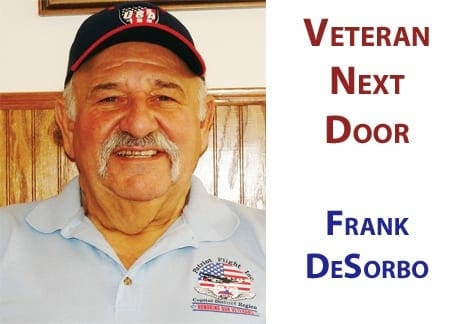“A nation that forgets its history has no future.” — Winston Churchill.
The year 1944 saw the largest amphibious invasion in our history, the Normandy Invasion, and the largest battle of World War II, the Battle of the Bulge. From those two historic events, many of the “Veterans Next Door” emerged.
The courageous and patriotic men of the war returned home to some victory parades in the big cities, but many times, the “Veteran Next Door” came home to work on the farm, or get a job. As Dad said, “Great work over there, (but) we have much work here.”
They left home with a patriotic spirit and returned home with an adult mind that people could not imagine or understand. Only through their eyes and hearts could they cope. Returning home did not bring heroic deeds for all, and for many they never shot a gun. Some continued working, and a veteran’s work ethic led one person to work 44 years without missing a day. The phone company gave him credit for his time serving in the war.
Most veterans came home and dealt with the memory wounds through silence — a silence that at times inspired, and other times destroyed. I have found that when they relived their youth, it made them feel 19 again. Hearing them tell of the medals they never received — a fire someplace destroyed their paperwork, politicians that help and some that run away – some of these veterans are still hurt, but all are patriotic and proud.
Have you ever asked a veteran, “Why didn’t you ever talk about it?” — rather than tell us what they felt or what they did in the combat zone. Some responses I was given:
• “Because I saw enough killing. Who wants to hear about that?”
• “We were so glad it was over, and now we are going home. Who wanted to talk about it?”
• “We did many good things, (and) we did things that were bad. So, why talk about it?”
• “If I did not talk about it, the memory would fade (and) I’d sleep better.”
• “We were always afraid, and people can’t understand that.”
I started the D-Day Revisited Association with my two sisters, my two bothers and my son. But, this article is not to teach history. Rather, it’s to tell the respectful memories that piled up in my mind over the five years of “D-Day Recognition and Remembrance Day” events.
The Normandy Invasion was the best of times and the worst of times. It demonstrated that a despot could not rule the world, and we were bringing civility where it did not exist for five years.
These men opened their hearts and mind to me. They told me stories that are rarely heard or seen on TV. I spoke to a pilot at the Normandy Invasion, and I could tell from his voice he truly “felt so sorry for those guys on the beach.”
Let June be “Veteran Next Door” month. Thank you to the veterans next door.



